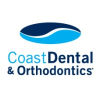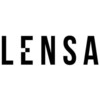Job Details
Description
Registered dental hygienists are assigned duties and responsibilities which involve licensed professional work in providing dental hygiene services.
A registered dental hygienist implements appropriate standard of care therapy, assists a dentist in providing hygiene, periodontal or dental care and treatment, provides dental hygiene assessments, treatment planning with a dentist, and conducts oral and overall health care education and instruction to patients.
Duties and Responsibilities
- Administer local anesthesia (Under Direct Supervision of dentist present in facility hygienist must have successfully completed continuing education or received training on this treatment as part of an accredited dental hygiene program to administer).
- Administer nitrous analgesia (Under Direct Supervision of dentist present in facility hygienist must have successfully completed continuing education or received training on this treatment as part of an accredited dental hygiene program to administer).
- Assess patients’ teeth, bone, and periodontal tissues indicating the presence of any abnormalities or suspected diseases or conditions.
- Co-diagnose with the dentist to develop appropriate periodontal treatment plans.
- Bring to the immediate attention of the dentist any suspected lesion in the mouth or on the teeth.
- Thoroughly remove soft and hard deposits and extrinsic stain from teeth, using hand instruments, ultrasonic cavitron inserts and prophy handpieces.
- Instruct patients how to practice good oral hygiene; make recommendations as to appropriate products or devices for patients’ home care;
and provide other health care education, as necessary.
- Perform prophylaxis in the absence of periodontal disease or gingivitis.
- Perform full mouth debridement, either as a first stage gingivitis therapy or to remove interfering calculus to further enable a more accurate diagnosis and treatment plan.
- Perform root planning as a periodontal therapy.
- Use lasers to perform intrasulcular periodontal procedures or tooth whitening procedures, provided the dentist and hygienist have successfully completed a board-approved course in laser proficiency with the Academy of Laser Dentistry.
- Placement and removal of periodontal packs.
- Place locally-administered antibiotics as supportive periodontal therapy.
- Implement irrigation and desensitizing procedures or products as adjunctive to periodontal therapy.
- Expose, develop and mount dental x-rays (intraoral and extraoral).
- Apply cavity-preventive agents, such as fluorides.
- Apply pit and fissure sealants.
- Removal of temporary and permanent cement.
- Make and cement temporary crowns.
- Recement permanent crowns and bridges with nonpermanent material as a palliative.
- Place and remove temporary sedative fillings.
- Remove sutures.
- Make recommendations as to patients’ recare interval and follow-up needs.
- All general orthodontic wires placement and removal procedures, including bands.
- Curing orthodontic brackets.
- Take Facebow transfers and Bite registrations.
- Adjust dentures extraorally.
- Taking impressions and constructing bleaching trays for take-home whitening.
- Application of bleaching agents and activation with non-laser light. (LumaLite permitted)
- All other duties and responsibilities as assigned and allowed under applicable state laws and regulations.
Qualifications
Qualifications
- Dental hygienists must be licensed and in good standing with the State of Florida.
- Associates or Bachelor’s degree in dental hygiene.
- Current Basic Life Support (BLS) and cardiopulmonary resuscitation (CPR) certificate.
- Dental hygienists must be willing to partner with the dentist, work well as part of the total dental team and should have good eye sight and manual dexterity, because they use dental instruments within a patient’s mouth, with little room for error.
Working Conditions
Registered dental hygienists work in clean, well-lit offices. Important health safeguards include strict adherence to proper radiological procedures, infection control protocols and the use of appropriate protective devices when administering anesthetic gas or working in the dental laboratory.
Dental hygienists also wear safety glasses, surgical masks, full arm length gowns / lab coats, and gloves to protect themselves and patients from infectious diseases during all patient care.
Open-toe shoes are forbidden, long hair is recommended to be pulled back and finger nails are to be kept short and tidy for all dental hygienists.








